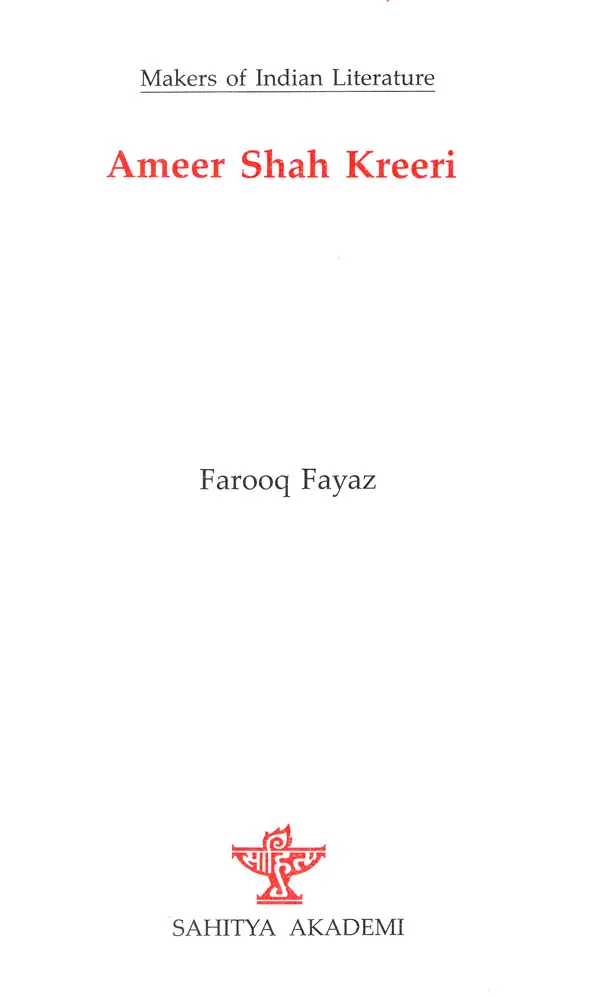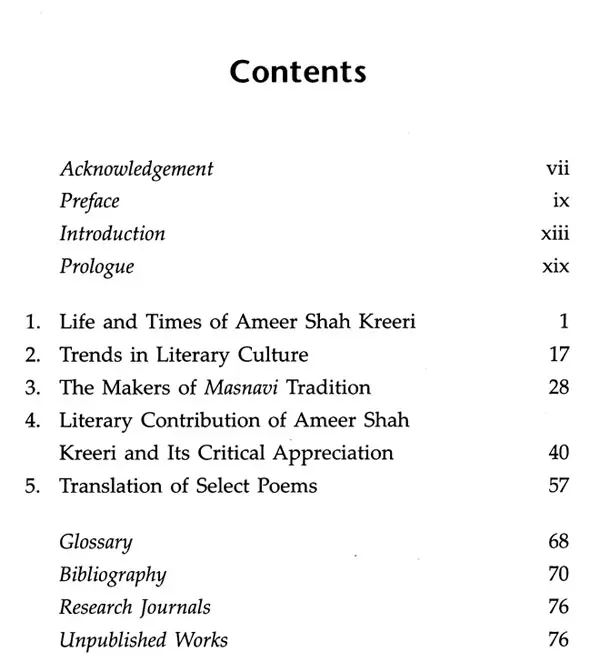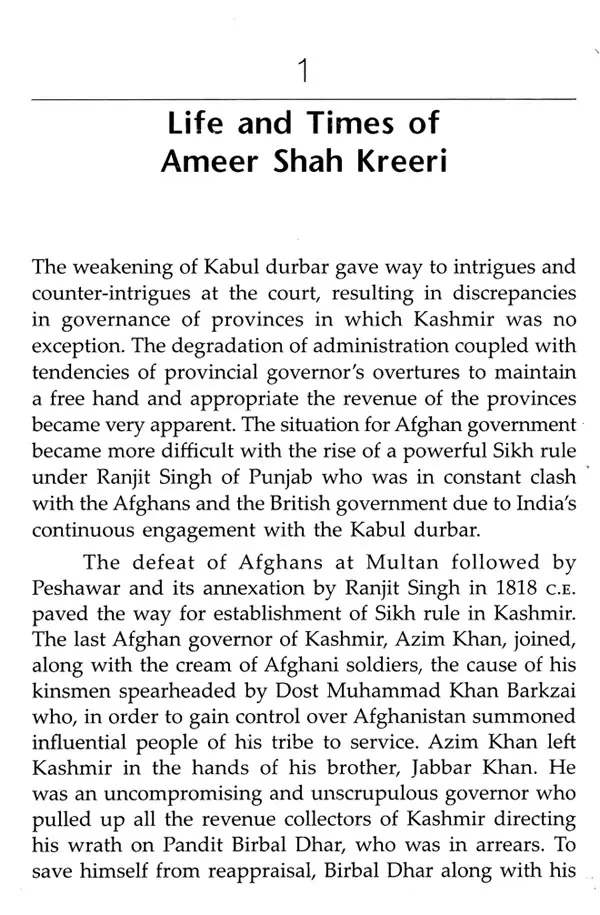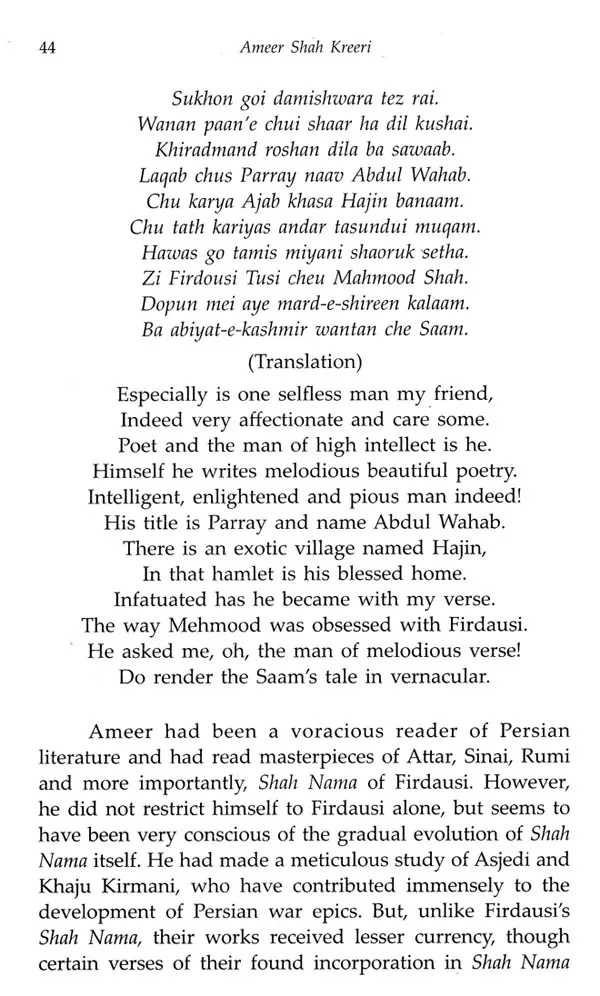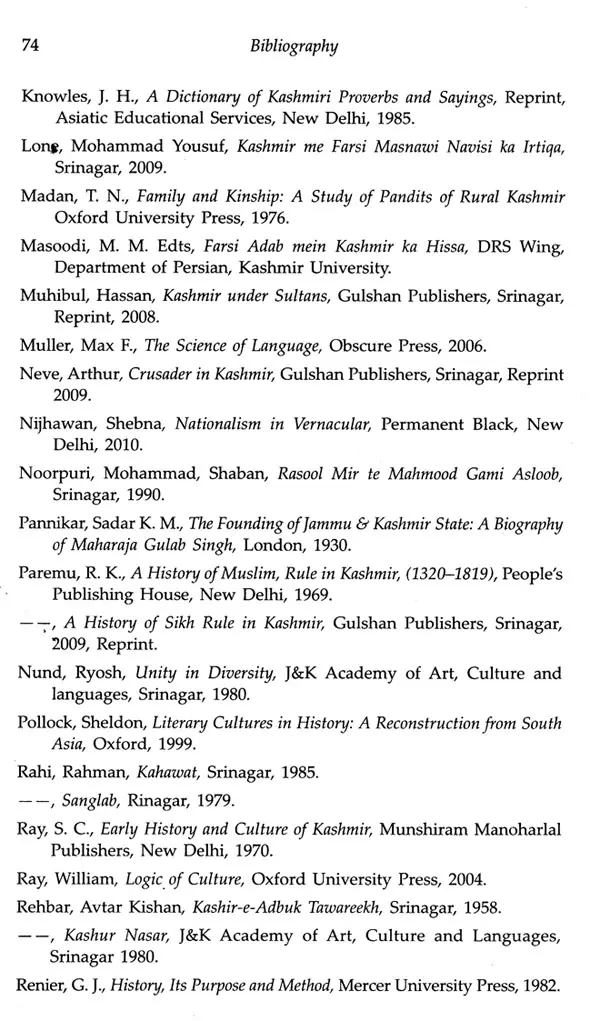
Ameer Shah Kreeri- Makers of Indian Literature
Book Specification
| Item Code: | UAM464 |
| Author: | Farooq Fayaz |
| Publisher: | SAHITYA AKADEMI, DELHI |
| Language: | English |
| Edition: | 2017 |
| ISBN: | 9789386771094 |
| Pages: | 75 |
| Cover: | PAPERBACK |
| Other Details | 8.50 X 5.50 inch |
| Weight | 140 gm |
Book Description
Ameer-ud-Din Bukhari popularly known as Ameer Shah Kreeri has great contribution to the world of Kashmiri as well as Persian literature. Shah used to be a popular house hold name for his epic poetry. He also had the distinction in his unique religious poetry for writing Naats etc. His notable works include Saam Nama, Khawar Nama, Anwaari Muhammadee, Ejaazi Sarmedee, Mairaaji Aahamedee, Jaangi Alqam, Aarifi Qadree, Zaffar Nama, Shajara-tul-Sadaat, Bahasi Surakh-o-Zard, Nosheen Nama, Hujowaat, Hadya-i-naat and etc.
Farooq Fayaz (b. 1954) is an accomplished social scientist, writer and a known literary critic. He has to his credit seven books on wide variety of themes pertaining to Kashmir history, culture and literature. His area of specialisation is oral history and Kashmir folklore. His work entitled Kashmir Folklore-A study in Historical Perspective has been adjudged as the best book for the year 2009-2010 by the J&K Academy of Art, Culture and Languages.
Contemporary knowledge has often sought radical breaks from disciplinary orientation of subjects to initiate a interdisciplinary approach in which the barriers between subjects tend to vanish. This facilitates development of an holistic knowledge that enlightens all aspects of human life. In tune with this shift, the discipline of history has considerably harnessed other spheres of knowledge which are used as potential sources for framing the exact picture of the human past. The discipline of history has greatly helped in arranging, cataloguing and understanding the other subjects, thus proving mutually beneficial. Such incorporations never dilute the autonomous and ontologically distinctive characters of each subject. Disciplines like history and literature are intimately connected and mutually complementary to each other. The fecund human impulse to incorporate sublime feelings and thoughts into aesthetically and intellectually fertile literary compositions have been documented to constitute literature. The chronological sequence of authors and texts has lead to production of literary history which is an old and shared sub-discipline. The authors and texts are considered products of the times in which different historical forces produced them. Therefore, literature is firmly grounded in the matrix of history, giving rise to a definite historical criticism of art. Understanding the perception of authors and their texts by the intelligentsia, critics and general public, is the locus of the historical analysis of literature.
In the era of specialisation, the canvas of historical analysis has considerably broadened, leading to incorporation of multiple aspects and disciplines. This has resulted in the emergence of many sub-disciplines with an ontological existence and an interdisciplinary appeal. The cross fertilisation of many disciplines has opened up a can of possibilities for historical analyses of those independent aspects of human cultures that make overall human society. As far as the sub-discipline of socio-cultural history is concerned, the study of language and literature encourages fertile spirit of enquiry. A direct streak of creativity of the human mind reflects itself in the production of literature, which becomes a concrete document of human progress from stage to stage. Different aspects of understanding and production of literary texts in a linear chronology entail the study of literature in a historic perspective crystallising into literary history.
**Contents and Sample Pages**
